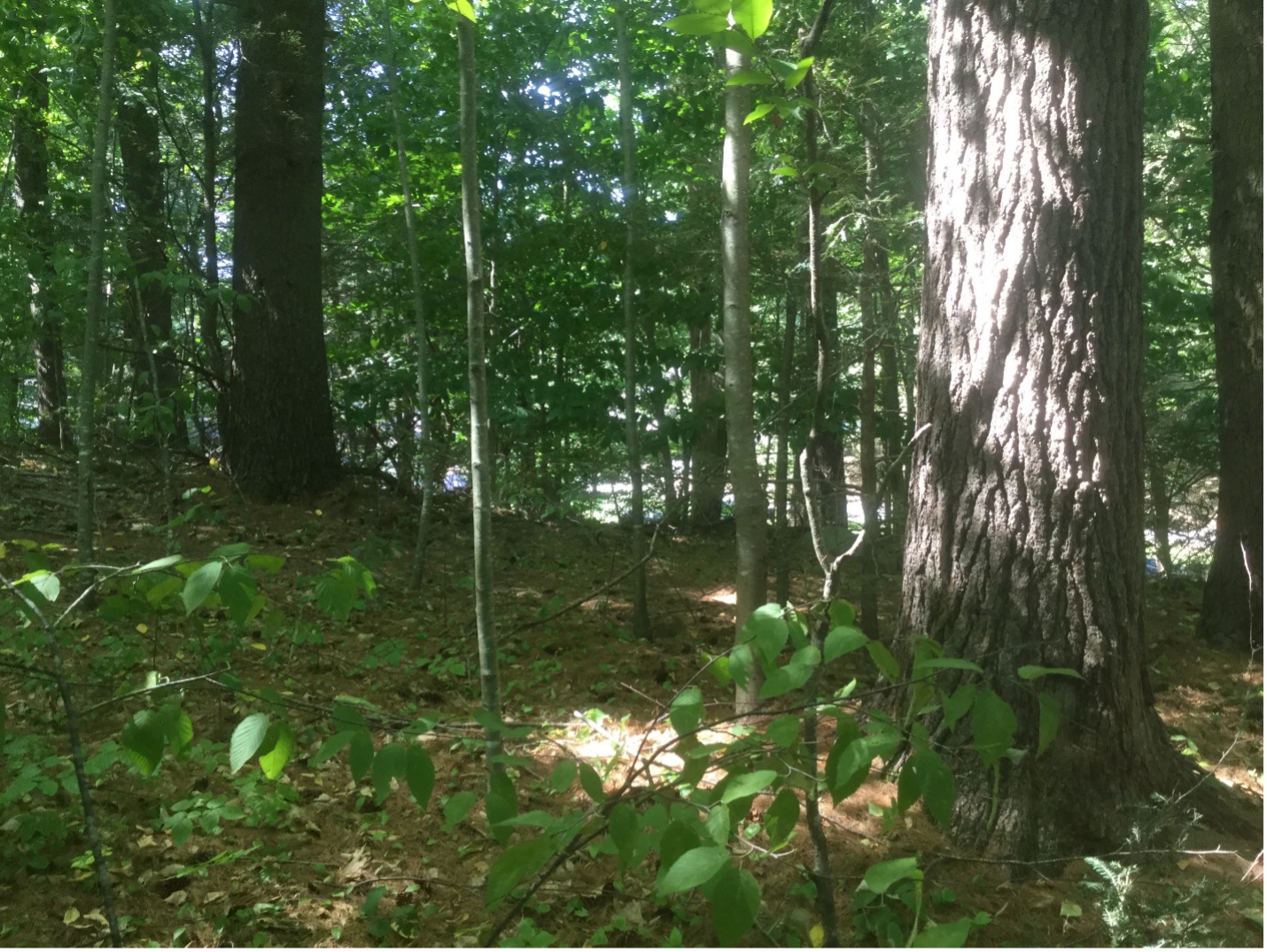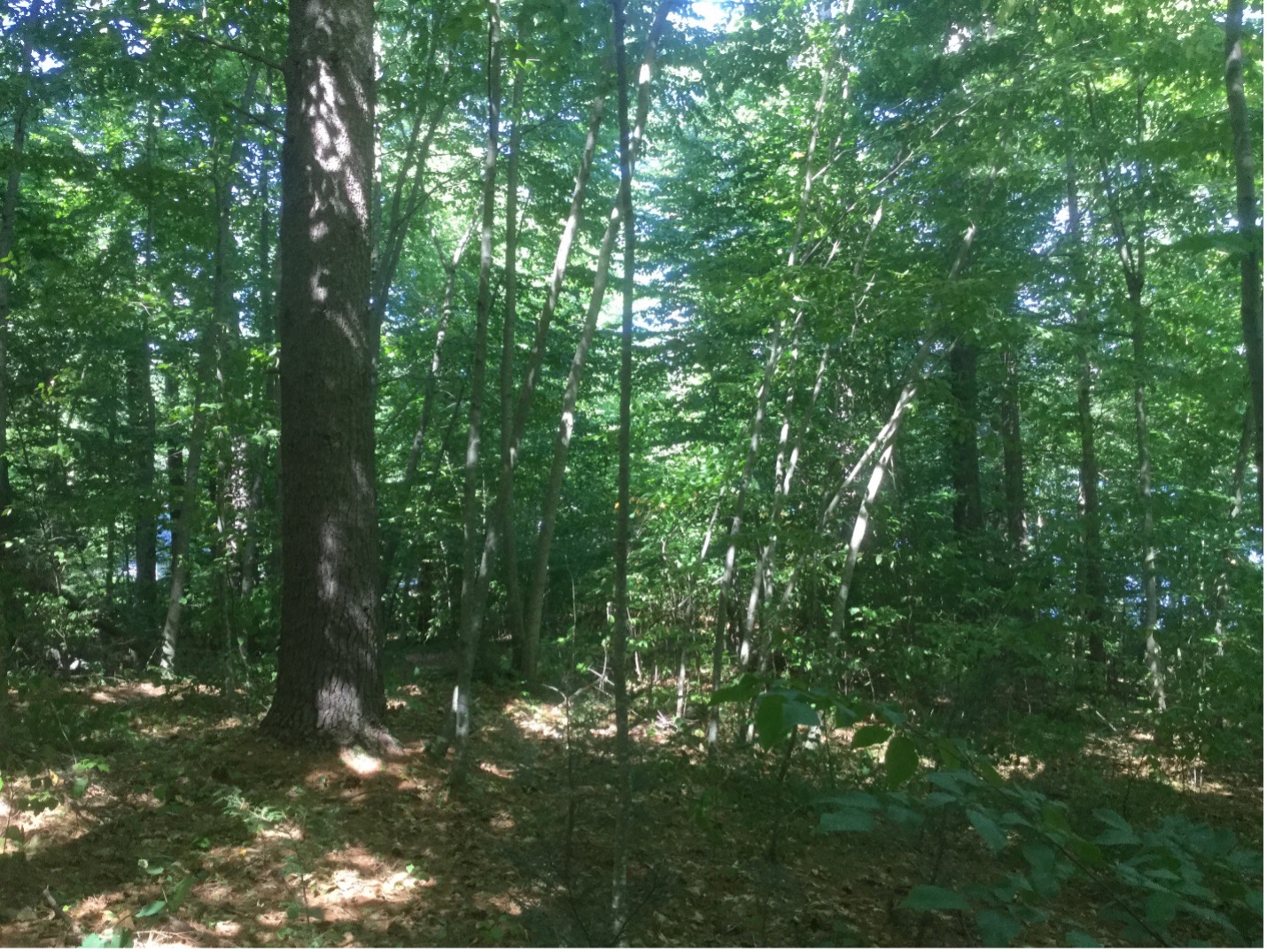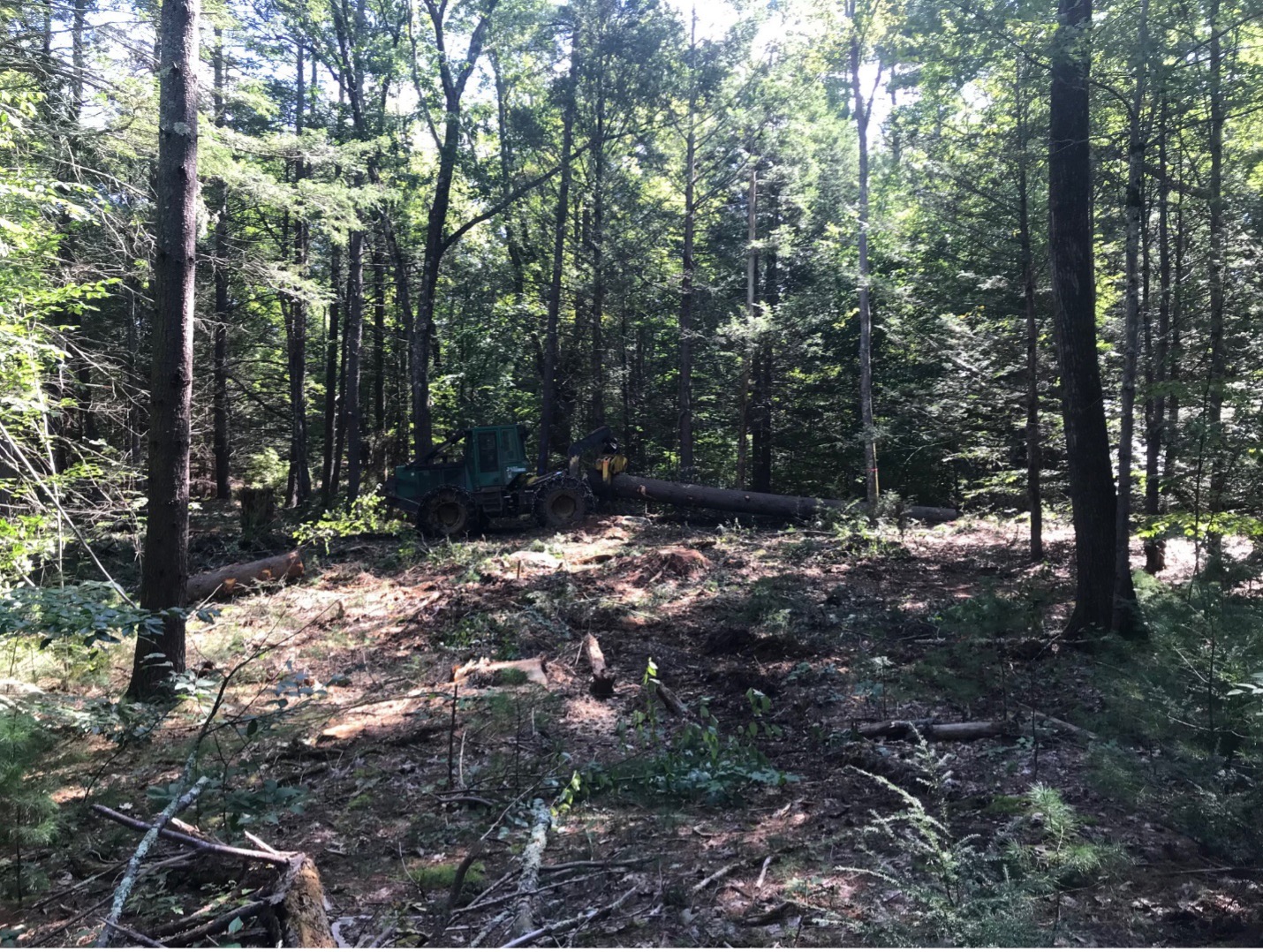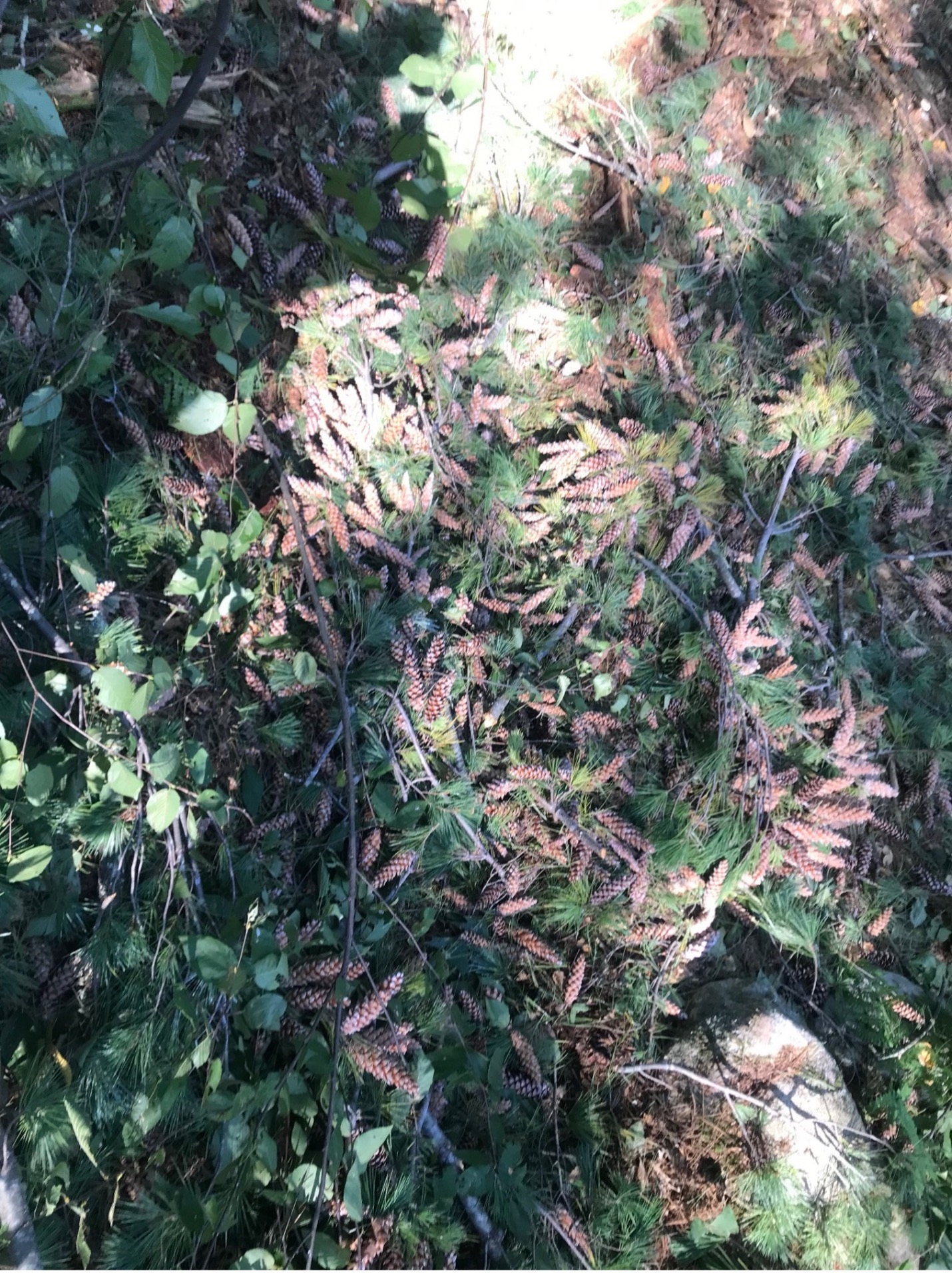Secondary tabs
Submission information
Meadowsend Timberland Ltd. NH7 – Governors Island Forest
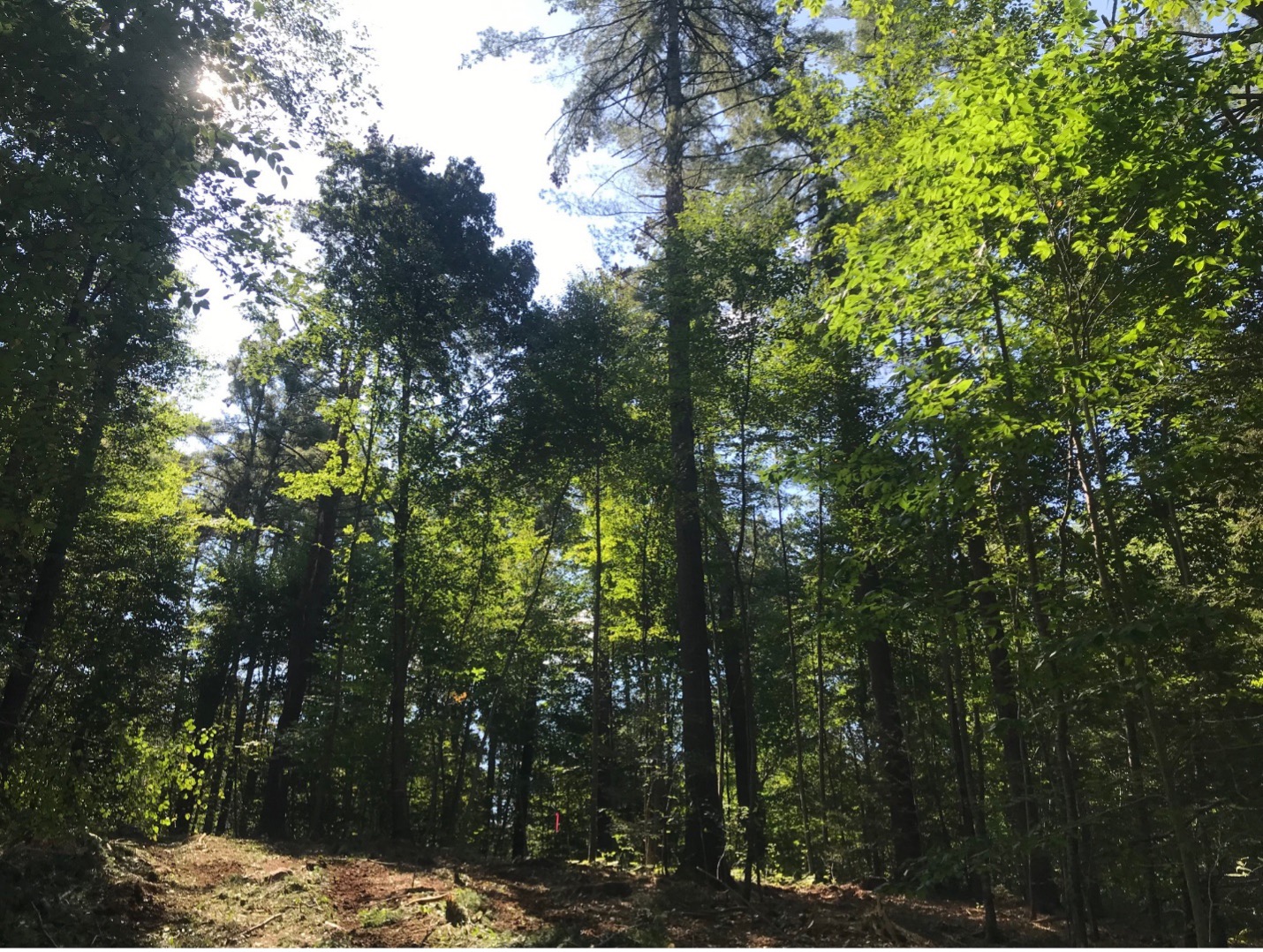
The property is located in Hampstead, NH and is Meadowsend most-southern property. The land has been owned by Meadowsend for over 30 years and two harvest treatments have been applied prior to initiating the latest harvest entry. Past harvesting has been focused on promoting the best quality pine while promoting the regeneration of a new cohort. Past management successfully regenerated a second cohort which is dominated by hardwoods. The most recent harvest was conducted in the fall of 2023 during an abundant white pine seed year.
Site Location
Hampstead, New Hampshire
NH-7, Governors Island Forest, is a 35.61-acre tract in Rockingham County, in the towns of Atkinson (7 acres) and Hampstead (29.18 acres), New Hampshire.
42.867631
-71.192744
The property is accessed from a landing site located on West Road in Hampstead, NH between Governors Island Road and Hemlock Heights Road. The landing site provides parking for 1 car and the land is open to the public. The land is also accessed rom local hiking, and mountain biking trails which enter the property from Governors Island Road and Hemlock Heights Road.
The property is accessible by car. The landing site provides parking for at least one vehicle. From there, the land is accessible by foot.
Meadowsend Timberland Ltd.
+1 603-568-7480
Stand Information
34.1 acres
White pine - hemlock - transition hardwood
Hemlock-Beech-Oak-Pine Forest
Two-age - Large saw-timber white pine with a younger age class of large sapling and pole timber hardwood dominated by black birch.
hemlock woolly adelgid
,
hemlock woolly adelgid
emerald ash borer
Canton fine sandy loam with 15-25% slopes, very stony; Freetown and Natchaug mucky peats, ponded, 0-2% slopes; Chatfield-Hollis-Canton complex, 15-35% slopes, rocky; Water
1930
Pre-treatment Conditions
To date, three harvests have occurred since the 1980s. The first harvest under MTLs ownership occurred in 1999. The pre-harvest plan for this entry as well as on the ground interpretation indicate that a large volume of poor quality over-story white pine was removed in an effort to increase growing space for residual trees and to recruit a new age class of white pine. A much smaller volume of hemlock, red oak, and black birch were also removed during the entry. Another 24.56 MBF of pallet/tie logs and roughly 269 tons of hardwood and softwood pulp were also removed. Although no documentation of the 1980 harvest can be found in the Governors Island Forest land file, the pre-harvest plan for the 1999 entry suggests that this entry removed 75 MBF of white pine. The third harvest removed 125 MBF of saw-timber and was focused on continuing to promote the two ages classes present (a dominate over-story white pine component and black birch dominated midstory.
The stand was approximately 90+ and 15-30+/- years old, with an adequate stocking level above the B-line on the mixed-wood stocking guide (Leak 2014). During MTL ownership, two harvests have occurred - one in 1999 and another in 2011. Both harvests were partial. Timber quality was good-moderate. White pine is of good quality and the hardwood component is of good quality with potential to continue to improve.
Pinus strobus (eastern white pine)
47%
Quercus rubra (northern red oak)
18%
Betula lenta (sweet birch)
16%
Basal area of 140 ft^2/acre, TPA of 244, QMD of 10.3", % AGS Sawtimber of 85%, and Total AGS BA per acre of 93 ft^2/acre.
The forest's health was good overall, with some vulnerability to HWA and invasive species. Invasive species were a resource concern for this stand. Invasive species are common along road sides and near landing sites. Scattered throughout property.
Silviculture Prescription
The property is located in Hampstead, NH and is Meadowsend most-southern property. The Governors Island Forest is situated on the eastern flank of Island Pond, a heavily used, 532-acre body of water. Governors Island Forest is one of MTL's southernmost landholdings in NH, located 20 miles from the seacoast, 30 miles south of Concord, and 45 miles north of Boston. The property is conserved with an easement held by the Society for the Protection of New Hampshire Forests. The property is also enrolled in the New Hampshire Tree Farm Program and the current use tax program. The land has been owned by Meadowsend for over 30 years and two harvest treatments have been applied prior to initiating the latest harvest entry. The property historically has been dominated by white pine. Past harvesting has been focused on promoting the best quality pine while promoting the regeneration of a new cohort. Past management successfully regenerated a second cohort which is dominated by hardwoods. Black birch, red oak, and sugar maple are now common in the large sapling and pole timber size classes. The objective of the recent harvest entry was to nurture this second cohort of transition hardwoods, promote the regeneration of a third cohort, and retain a proportion of the white pine over-story as future harvestable timber and lasting ecological legacies. The most recent harvest was conducted in the fall of 2023 during an abundant white pine seed year. The prescription used in this treatment was an irregular shelterwood.
The silvicultural objectives include a management system of uneven-aged/multiple aged management. Wildlife management was to recruit additional dead standing and downed woody material, to retain softwood component, and to continue to promote oak and black birch. The desirable future conditions include a diverse multi-aged forest system with white pine, red oak, and black birch playing an important role in the composition. The crop tree target diameter = red oak 20", black birch 16-18", maple 16-18", and white pine 22".
Short-term management goal: Promote the continued development of a diverse, compositionally and structurally, forest stand with white pine persisting in the overstory while desirable hardwood trees (black birch, red maple, red oak) continue to increase in dominance. Address resource concerns and continue to balance multiple uses and benefits on the property. Long-term management goal: A diverse forest system with low vulnerabilities to common stressors and high resiliency in the face of changing environmental conditions. A stand which grows high quality saw-timber while serving multiple ecosystem function.
Active Management - Irregular Shelterwood: Continue to promote the diversification of the age classes by encouraging the growth of the hardwood component established following previous harvests. Use the irregular shelterwood approach to expand upon previous group openings. Harvest a proposition of the overstory pine in groups and individuals to provide addiitonal light resources to the established black birch, oak, red maple, and pine saplings and poles. Harvest openings can also be used to establish a new cohort of trees with the desired species being black birch, red oak, red maple, and white pine. Harvests should look to remove 50% or more of the overstory pine allocation 30% of the stand to regenreation while expanding on previous gaps and continuing the thinning in the forest matrix. Residual basal areas in pine dominated areas should approach 70-80 ft^2/acre. Allocate 10-15% of the stand area to extended reserve areas. This would entail limiting harvests during this entry to allow for the continued development of a pine dominated stand condition. Following harvest treatment, invasive species control measures should be considered. Mechanical removal and chemical treatment for two consecutive years is recommended. The landing site could be closed out and seeded with a conservation mix to maintain the area in an open meadow condition. An access control gate should be installed at the landing entrance.
Regenerate hardwoods (black birch, red oak, maple) and pine if possible. Massive white pine seed year with good scarification.
irregular shelterwood
- forest health
- species or ecosystem restoration
The transition hardwood componenet of the stand is well adapted to projected future climate conditions. Black birch, red maple, and oak are abundant. Promoting forest resilience is a primary objective and this is supported through maintaining and enhancing species and age class diversity. We have two ages currently and hopefully we can regenerate a third.
Post-treatment
Miscellaneous
Landing build required 4 loads of 3-4" minus erosion stone and several wooden crane mats. NRCS funds have been secured for invasive species control cost share. Expected 3 year follow-up invasive treatment.
Statistics
Contact Information
Meadowsend Timberland Ltd.
Meadowsend Timberland Ltd.
Supplementary Content
